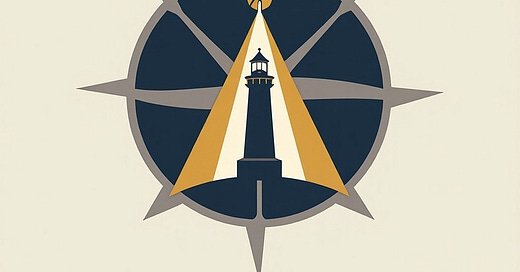Has anyone ever told you to think for yourself? Sounds easy right? Turns out thinking for yourself is not as easy as we think in our new digital age.
And this is just a part of the truth, because thinking is expensive, and failing to reason may just cost more than we care to realize.
Our brains are only about 2% of our body weight, yet they burn around 20% of our energy. Add sustained critical thought or emotional strain, and the cognitive load, the total mental effort our brain is using, becomes immense. Compared to walking a mile, deep thinking is metabolically more expensive in terms of energy burned.
So our brains take shortcuts, literally, because we have to. We don’t have the energy to follow every path in front of us. Here is your vocab lesson for this article:
Heuristics: quick mental shortcuts, rules of thumb we use to make fast decisions without deep thought.
Confirmation Bias: our brain’s tendency to seek out and favor information that confirms what we already believe.
Tribal Cues: signals, like tone, symbols, or slogans, that show us what our group believes, so we can align.
Cognitive Dissonance Avoidance: the mental discomfort we feel when new ideas clash with what we believe, often causing us to reject an idea out of hand.
These shortcuts are natural. They're not flaws. They're the result of evolutionary wiring that allowed us to survive. In the wild, thinking too long meant danger. In modern life, it still does, but now the threat is social, political.
The tribe is watching.
When we post something online, speak in public, or even just share an idea with a friend, we’re not just weighing facts. We’re watching for signals, Who agrees? Who disapproves? What will happen to me if I change my mind?
Let me give you an example.
Not long ago, I mentioned to my sister the dozens of women who have come forward publicly to accuse Donald Trump of sexual assault. I referenced this Wikipedia article.
Her response wasn’t to read it. She simply said, “Wikipedia is run by the left.”
That’s heuristics in action.
The instinctual shortcut had already decided for her: Wikipedia instantly untrustworthy not for the information it contains but for the mindset it challenges. The moment the source was labeled “from the other side,” her brain shut the door. No evaluation. No reading. No reflection. Just dismissal.
We can’t know the exact heuristic at play, but I suspect it went something like this: Any statement that challenges my belief in a strongman leader is likely an attack from the left.
And once that reflex, an automatic mental reaction, kicks in, even intelligent, caring people disengage from truth. Not because they lack reason, but because they’re using reason to protect identity. That’s rationalizing: using logic not to find truth, but to defend what we already believe.
The truth-seeker must work at least six times harder than the person who defaults to bias. The smarter we are, the more energy it takes to overcome these patterns, our bias, because smarter people are often better at rationalizing whatever they already believe.
We don’t see reality. We see stories.
And in the fog of noise, the easiest path is to dismiss. Not challenge. Not engage. Just dismiss.
Dismissal is our first line of defense. It saves energy. It protects status. It preserves identity.
But it costs truth.
This is not a call to shame. This is a call to awareness.
When we see a headline, when someone challenges our view, when discomfort rises, if you can pause, maybe your brain can too. That’s the moment of power. You have an opportunity now to check is this post, meme, feed trying to manipulate me?
Truth doesn’t shout. It waits.
It’s easy to repost something that aligns with what we believe. It feels good. It earns likes. It bonds us to our tribe. But the first step in thinking clearly is noticing the pull of the tribe, and pausing long enough to ask:
“Is this true, or just familiar?”
We are not failing as individuals. We are being overwhelmed as a species. The pace of information exceeds the pace of reflection. Algorithms, automated systems that feed us more of what we already like, know this. Opportunists, those who exploit confusion or fear to gain power, count on it. The noise is the point.
And that’s why thinking must become an act of defiance. Reflection must become our ritual.
Because the fog isn’t going to lift by itself.
We must rise through it.
Together.
This is us.






Share this post